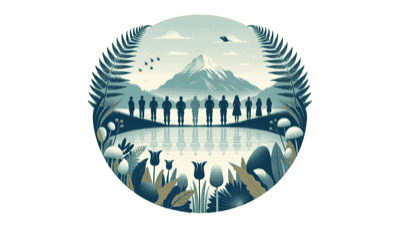We're here to help you keep count of the days to or since a date. Just click the button below and enter your chosen date to get started. Also choose the suggested days or search for a special day above #countingthedays

ANZAC Day, commemorated on April 25th each year, is one of the most significant national occasions in New Zealand. It marks the anniversary of the first major military action fought by Australian and New Zealand forces during the First World War, at Gallipoli, Turkey, in 1915.
The acronym ANZAC stands for Australian and New Zealand Army Corps. The soldiers in those forces quickly became known as ANZACs, and the pride they took in that name endures to this day. The ill-fated Gallipoli campaign resulted in heavy casualties for both countries and had a profound impact on their home populations. ANZAC Day was first commemorated at the anniversary of the landing in 1916, and over time it has become a day to honor those who have served and died in all wars, conflicts, and peacekeeping operations.
Dawn Services: These solemn ceremonies commence at dawn, reflecting the time of the original landing at Gallipoli. They typically include readings, hymns, and laying of wreaths.
Commemorative Parades: Following Dawn Services, veterans parade through towns and cities with current service personnel and cadets. This often includes a march to a local war memorial.
Wreath-Laying Ceremonies: Wreaths are laid at war memorials as a sign of respect and remembrance.
A Moment of Silence: A minute's silence is observed to remember those who have fallen.
On ANZAC Day, New Zealanders attend local ceremonies or watch televised national services if they cannot attend in person. Many wear red poppies as a symbol of remembrance—a tradition inspired by the flowers that grew on battlefields after World War I ended. It's also common for people to bake ANZAC biscuits—a traditional recipe made during wartime. The day is considered an opportunity not only to remember the sacrifices made but also to reflect on issues surrounding war and peace.
Educational programs are often organized in schools leading up to ANZAC Day to inform students about New Zealand’s military history. Additionally, many families use this day as an opportunity to visit memorials or exhibitions that focus on their country's military past.
ANZAC Day is seen as a day for national unity and reflection rather than celebration; it brings together New Zealanders from all backgrounds to